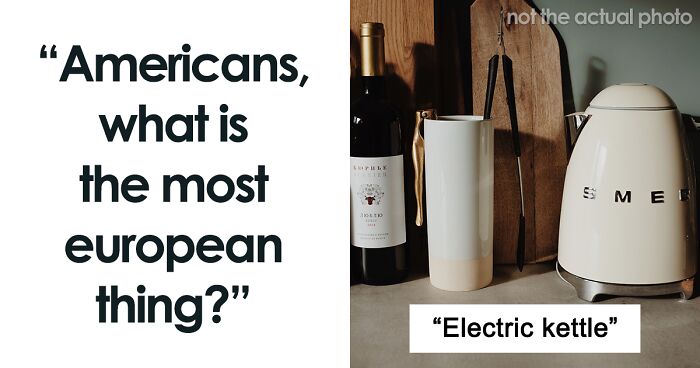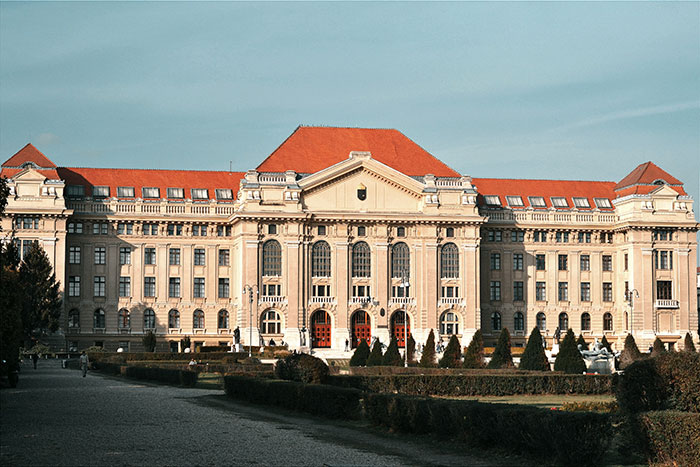For the worldly American, the summer Eurotrip is practically a rite of passage. While much connects the US and Europe, the two entities are different enough that American travelers often experience culture shock when they visit different European countries for the first time. One person on Reddit asked American travelers to share what struck them the most when they visited and got a ton of great responses.
The two continents’ histories, both separate and intertwined, make for an interesting opportunitY to compare and contrast how they’ve found different solutions to similar problems. While some of the comments shared were lighthearted and fun, others pointed to interesting differences in perspective.
This post may include affiliate links.
 Restaurants paying employees a fair wage and not expecting the customer to make up for low wages.
Restaurants paying employees a fair wage and not expecting the customer to make up for low wages.
 Universal healthcare
Universal healthcare
Can confirm. I have full healthcare and it's paid for automatically via the taxes I pay every paycheck. I never have to make a claim or argue with an insurance representative about coverage. I just go to the doctor/hospital/pharmacy and get what I need. Don't tell me the richest country in ALL OF HUMAN HISTORY cannot afford it too.
 Good bread.
Good bread.
A ban on high fructose corn syrup does wonders for both the food and health of your citizens!
Europe is a popular enough travel destination for Americans that there’s tons of info out there on the cultural differences. There are tons of travel sites out there that help American tourists understand some of the cultural and practical differences they can expect. Indeed, stats indicate that Europe was the top outbound US tourism destination by continent with 15.8 million visitors.
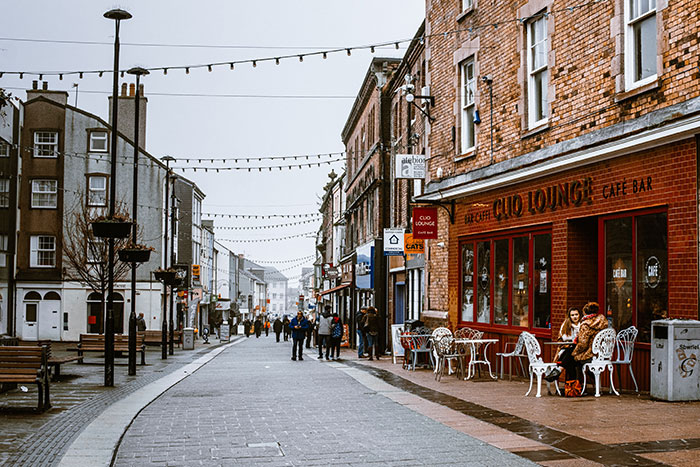 Walkable towns
Walkable towns
We in Europe have mixed cities with businesses and housings being closer together, while US cities have more separated areas resulting in longer distances to travel
Americans think 100 years is a long time and Europeans think 100 miles is a long distance.
 Bars older than the US
Bars older than the US
My uncle's cottage isn't just older than the the U.S.A - it's older than the discovery of America.
One major historical difference is that the USA was born out of a revolution. This gives it quite a distinct cultural legacy and makes it quite young on a historical scale. Some of the answers to this question highlight as much, pointing out that they can visit historical buildings or even working pubs that are older than the entire United States as a political entity.
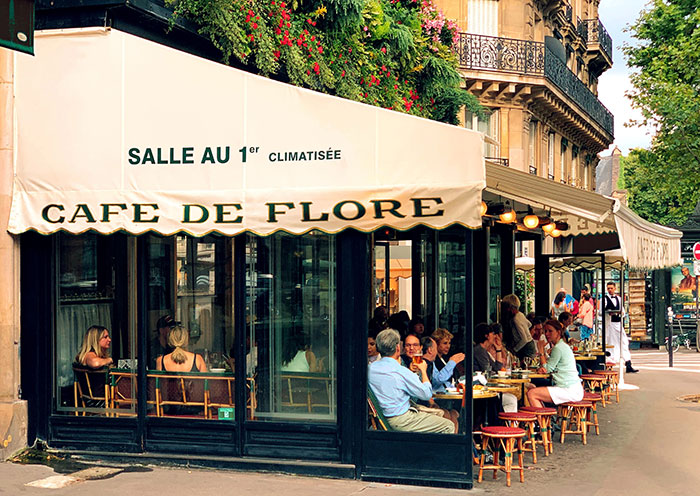 I think as a whole, it’s there attitude towards work.
The vibe I get when visiting most European countries is most people seem to work only to live. While in the states, it feels we live to work. The most common thing out of an American’s mouth when meeting someone new is what do you do? I did not find this to be the case in Europe, and I am super jealous.
I think as a whole, it’s there attitude towards work.
The vibe I get when visiting most European countries is most people seem to work only to live. While in the states, it feels we live to work. The most common thing out of an American’s mouth when meeting someone new is what do you do? I did not find this to be the case in Europe, and I am super jealous.
Getting sick without going bankrupt
Man the one time I was hospitalised in the US and they sent me my bill by post, I thought it was some kind of statement of costs to the hospital, “actual value of goods supplied,” or some such thing. I made many guesses before realising it was *a BILL I had to PAY*. [Yes, I also did have to call to confirm—and you can imagine how weird that conversation went!]
Infrastructure built around walking, bicycles, and busses. Not just exclusively built around personal vehicles.
Seeing that most of these streets were built before cars, that is more likely the reason.
Though the US is considered by many to be the home of capitalism, one difference in some countries is that travelers can expect is to pay for certain services that are often considered to be gratuities in the US. According to TEFL Worldwide, for example, Americans may be surprised that they will have to pay for water at restaurants unless they ask for tap water and they may also have to pay for public restrooms. Many countries will make shoppers pay for plastic bags, but this is part of an EU-wide effort to move away from disposable plastic and towards reusable bags.
Another significant cause of some significant differences is the European political structure. The European Union enforces certain differences across the entire union, but at the same time, member states have far more independence than the states making up the US. Some cultural differences stretch across the entire EU and others can vary from country to country.
 The sirens that go BEEE booo BEEE booo BEEE booo BEEE booo
The sirens that go BEEE booo BEEE booo BEEE booo BEEE booo
Which turn out to be more effective, as they can be heard as twice as far as the US sirens and it's easier to determine their direction as well
 Drinking cappuccino on a cobblestone street outside of a cafe, which is hundreds of years old.
Drinking cappuccino on a cobblestone street outside of a cafe, which is hundreds of years old.
There are many differences in terms of money as well. Credit cards aren’t as popular in Europe as in the US, and most countries have moved away from paper checks entirely. Tipping for services is also usually considered to be optional, although very touristy spots that can spot American travelers may try to pressure them into tipping regardless.
 Sitting at a restaurant for hours talking. Half an hour of conversation with anybody and I am done. For the month.
Sitting at a restaurant for hours talking. Half an hour of conversation with anybody and I am done. For the month.
Conversation is a lost art. It’s so sad. I love to sit around and visit with people.
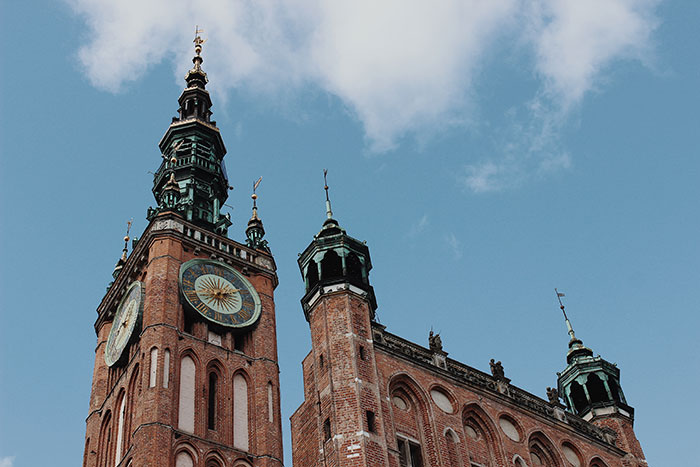 Gothic Architecture
Gothic Architecture
 Functional transit, carrying a beer outside at night, and post dinner coffee is super common
Functional transit, carrying a beer outside at night, and post dinner coffee is super common
A few of my best days/nights as a teen/young adult were spent with a mix of punks, skaters, goths and uhm "preppies"(?) drinking beer on some not so beautiful plazas. Our inner circle was about 6 people but it felt like half of the youth of said town met there. (imagine ca. 100 14-20 year olds of every subculture partying peaceful and even helping the person collecting the bottles )
Going for a stroll in somewhere like Northumberland you can pass buildings castles and hill forts covering over three thousand years.
On Yeavering bell (a hill in Northumberland) a circular stone wall is in need of repair. It was knocked down - by the Romans.
This one kind of bothers me because it ignores the fact that the lands that became the US had people living on them for thousands of years before Europeans arrived or the country even existed and many of their structures do still exist today. A lot aren't much more than arcaeological curiosities and they are sadly ignored in the public consciouness, but they do exist and should be recognized much like Europe's ancient forts and castles.
Thank you!! This “no history here” sentiment bothers me massively because it shows the how genocide succeeds… by making everyone forget it happened
Load More Replies...Definitely nothing around here for 3 thousand years except the dirt itself
Load More Replies...THREE thousand years? Not castles, at least. https://www.discoverwalks.com/blog/london/top-10-oldest-castles-in-the-united-kingdom/
Roundabouts.
Roundabouts are quite rare on main roads in the US. I live in Arizona, but after having driven all over in Scotland every day for 3 weeks, I have an appreciation for roundabouts I didn't have before: I rarely had to wait at stoplights. I watched youtube videos about roundabouts before I went and it was very much worthwhile (though it didn't prepare me for the Bannockburn Interchange when I had to reverse direction on the M9 - Edit for those confused by this: By 'reverse direction' I mean I was initially going east on the east-bound side and then I was going west on the west-bound side).
Thinking 100 miles is a long distance. I talked a brit once who said they hadn't seen their parents in two years because its a far trip... it was 2 hours away....
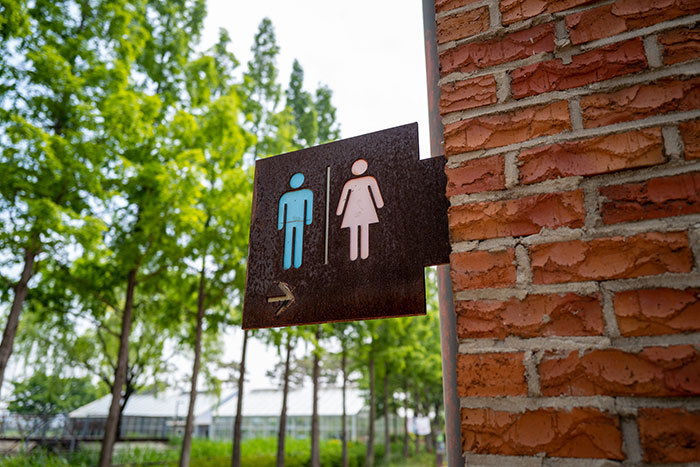 Pay to use a restroom.
Pay to use a restroom.
 Men wearing speedos at the beach or in a pool. The ones you do see in the US are usually Europeans on vacation
Men wearing speedos at the beach or in a pool. The ones you do see in the US are usually Europeans on vacation
No ac by choice
It helps when their homes are build super efficient with insulation.
€10 flights to nearby countries. The US could never.
Ryanair. v underrated. yes there is barely any legroom but you get it cheap and arrive safely
Complaining about Americans.
 Flying into Florida and thinking you can drive to Los Angeles, NYC, and Chicago easily.
Flying into Florida and thinking you can drive to Los Angeles, NYC, and Chicago easily.
Titles - Lord Humpty Dump or Countess Beaverhousen who are just related, distantly, to some ancestor who did some favor for a king somewhere.
No, pretty much all of the European countries abolished privileges a long time ago. Only one, the uk, didn’t and is still a caste society with unequal rights, nobility and titles that refer to its empire. (NB: there are other monarchies in Europe but purely symbolic, without aristocrats or remnants from the feudalism).
Vespas
Calling arkansas arKANSAS
Hard to give the generalized answer, since there’s a lot of differences between the various European nations, as well as every European I’ve met having been more distinct individuals than stock characters. But I do think they take the prospect of war more seriously as I wish we Americans would.
I must have missed it - nobody mentioned smoking? The American colonies gave the world tobacco, but it's been a long time since I've seen anybody walking around with a cigarette. I saw some cigar smokers a couple of weeks ago, but it was at a big festival. How many Europeans can go weeks without seeing a smoker?
I just have to look in the mirror and there he is.
Load More Replies...'One major historical difference is that the USA was born out of a revolution. This gives it quite a distinct cultural legacy and makes it quite young on a historical scale. Some of the answers to this question highlight as much, pointing out that they can visit historical buildings or even working pubs that are older than the entire United States as a political entity.' Such an American cliché. Europe is born, and will always be reborn, through revolutions, too. You had one, we're still on it.
Cue the typical comment about ‘BP is so anti-US’ and ‘BP sucks and should get some original content’ If you don’t like it then don’t get on??? No ones making you look at it
::clears throat:: "Cue the typical comment about ‘I think all Americans are overly-sensitive about the stereotypical mockeries and jabs directed at Americans’ and ‘BP isn't unfair as long as it's posting content that *I* think is funny’ If you don’t like it then don’t comment on it??? No ones making you post comments about what Americans might or might not say" -- there, how do YOU feel about a comment like that when it's directed at YOU?
Load More Replies...Speaking a few languages is because we are taught them at school AND you can throw a blanket over so many different nations when you compare the size of Europe to the U.S.
Hard to give the generalized answer, since there’s a lot of differences between the various European nations, as well as every European I’ve met having been more distinct individuals than stock characters. But I do think they take the prospect of war more seriously as I wish we Americans would.
I must have missed it - nobody mentioned smoking? The American colonies gave the world tobacco, but it's been a long time since I've seen anybody walking around with a cigarette. I saw some cigar smokers a couple of weeks ago, but it was at a big festival. How many Europeans can go weeks without seeing a smoker?
I just have to look in the mirror and there he is.
Load More Replies...'One major historical difference is that the USA was born out of a revolution. This gives it quite a distinct cultural legacy and makes it quite young on a historical scale. Some of the answers to this question highlight as much, pointing out that they can visit historical buildings or even working pubs that are older than the entire United States as a political entity.' Such an American cliché. Europe is born, and will always be reborn, through revolutions, too. You had one, we're still on it.
Cue the typical comment about ‘BP is so anti-US’ and ‘BP sucks and should get some original content’ If you don’t like it then don’t get on??? No ones making you look at it
::clears throat:: "Cue the typical comment about ‘I think all Americans are overly-sensitive about the stereotypical mockeries and jabs directed at Americans’ and ‘BP isn't unfair as long as it's posting content that *I* think is funny’ If you don’t like it then don’t comment on it??? No ones making you post comments about what Americans might or might not say" -- there, how do YOU feel about a comment like that when it's directed at YOU?
Load More Replies...Speaking a few languages is because we are taught them at school AND you can throw a blanket over so many different nations when you compare the size of Europe to the U.S.

 Dark Mode
Dark Mode 

 No fees, cancel anytime
No fees, cancel anytime 






